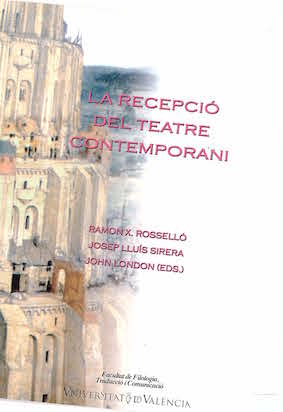La recepción interna en tres Séductions espagnoles de Louise Doutreligne: Don Juan d’origine, Faust espagnol y Carmen la nouvelle
DOI:
https://doi.org/10.7203/qf-elit.v15i0.3984Keywords:
theatre, woman, Spanish literature, French literature, reception Abstract
Abstract
Louise Doutreligne (Roubaix, 1948) is the author of a number of dramatic pieces written in French, which she has titled as “Spanish Seductions”. The set consists of seven titles published between 1998 and 2009, related in different ways to Spanish literature and subjects: Teresada’, Don Juan d’origine, Carmen la nouvelle, Faust espagnol, Signé Pombo, La casa de Bernarda Alba y La novice et le jésuite. Don Juan d’origine and Faust espagnol include inside their dramatic universe a theatrical representation inspired by Spanish Golden Age, and so does Carmen la nouvelle with Merimée’s famous Carmen. Our aim is to study how the Hispanic original culture is dealt with in these three plays, taking into account its reception by a French speaking audience.
 Downloads
Downloads
Downloads
How to Cite
-
Abstract302
-
PDF (Español)213
Issue
Section
License
 Este obra está bajo una licencia de Creative Commons Reconocimiento-NoComercial-SinObraDerivada 4.0 Internacional.
Este obra está bajo una licencia de Creative Commons Reconocimiento-NoComercial-SinObraDerivada 4.0 Internacional.
Authors who publish with this journal agree to the following terms:
- Authors retain copyright and grant the journal right of first publication with the work simultaneously licensed under a Creative Commons Attribution License that allows others to share the work with an acknowledgement of the work's authorship and initial publication in this journal.
- Authors are able to enter into separate, additional contractual arrangements for the non-exclusive distribution of the journal's published version of the work (e.g., post it to an institutional repository or publish it in a book), with an acknowledgement of its initial publication in this journal.
- Authors are permitted and encouraged to post their work online (e.g., in institutional repositories or on their website) prior to and during the submission process, as it can lead to productive exchanges, as well as earlier and greater citation of published work (See The Effect of Open Access).



